Access to land: resources database
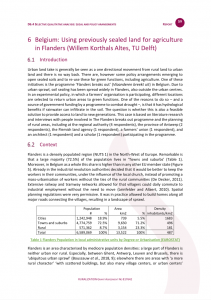
D6.4 Selective qualitative analysis incl 8 legal and policy arrangements – Using previously sealed land for agriculture in Flanders
Section title: 6 Belgium: Using previously sealed land for agriculture in Flanders
Highlights:
Flanders is for a large part neither urban, nor rural and there is a context of omnipresent urban sprawl. Even in the agricultural zone many urban uses of rural properties are either allowed or there is an official policy not to enforce rural use. Planning is centralised at NUTS 1 level and local authority units are considered to be irresponsible in allowing urban uses in rural areas. Policy ambitions to stop urban sprawl (by 2040) and to reduce sealed land in the agricultural zone (by 2050) have been formulated, but there is no effective implementation, by which these ambitions could be reached, in sight. The economic interests of urban development have a strong position. In this context a programme to unseal land has been formulated. The idea of this programme is that by calls coalitions of parties come together to implement local solutions, such as making a school garden instead of a paved school yard, or projects to transfer parking places in parkland, to unseal land. Apart from the qualitative results of the specific project, this may have a wider effect on the articulation of unsealing as a government aim with local support that may be brought forward by local authorities. There is a more systemic project on the reuse of former farm buildings as farmland. Although the outcomes of the programme to forge coalitions to develop specific unsealing of the land is positive, and it may result that land of roads will be unsealed more often, the structural prospects for the provision of agricultural land are negative. It is not only about the prospects of urban values for land and properties in the agricultural zone, but also the costs of unsealing land and demolishment of buildings, including underground structures as cellars, can be excessive, making it a less attractive alternative for farmers that aim to contribute to the quality of the rural environment.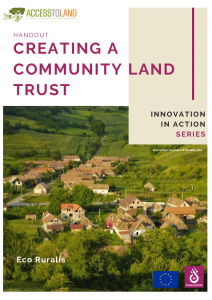
D6.5 Novel practices handouts – Creating a community land trust in Romania
Section title: Creating a community land trust in Romania
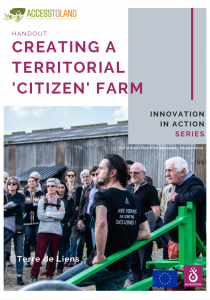
D6.5 Novel practices handouts – Creating a territorial ‘citizen’ farm
Section title: Handout – Creating a territorial ‘citizen’ farm
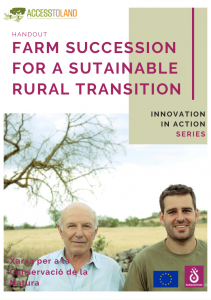
D6.5 Novel practices handouts – Farm Succession in La Vall del Corb
Section title: Farm Succession in La Vall del Corb
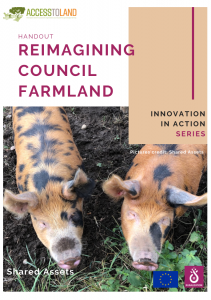
D6.5 Novel practices handouts – Handout “Reimagining farmland”
Section title: Handout “Reimagining farmland”
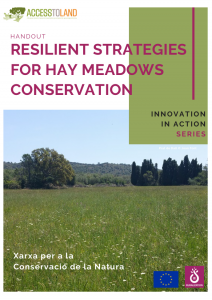
D6.5 Novel practices handouts – Handout on resilient strategies for hay meadows conservation
Section title: Handout on resilient strategies for hay meadows conservation
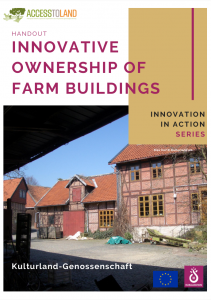
D6.5 Novel practices handouts – Innovative Ownership of Farm Buildings
Section title: Innovative Ownership of Farm Buildings
Highlights:
Innovative Building Ownership is an organizational innovation, a tool that supports new entrants to afford the purchase of farm buildings at the occasion of extrafamiliar farm succession.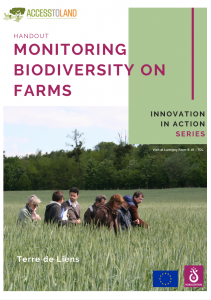
D6.5 Novel practices handouts – Monitoring biodiversity on farms
Section title: Handout – Monitoring biodiversity on farms
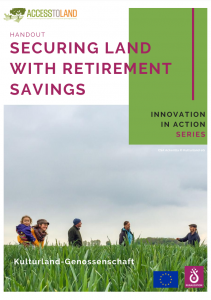
D6.5 Novel practices handouts – Securing Land with Retirement Savings
Section title: Securing Land with Retirement Savings
Highlights:
Farmers’ own retirement savings are invested in land purchase via a land stewardship organisation so they can contribute to securing ‘their’ land while stocking up their retirement provisions in the same time.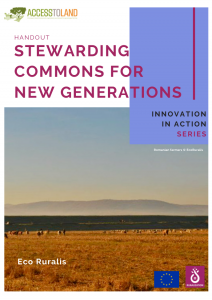
D6.5 Novel practices handouts – Stewarding the commons for new generations
Section title: Stewarding the commons for new generations
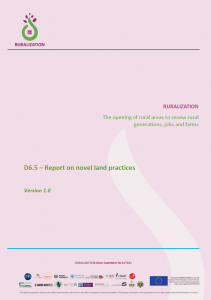
D6.5 Novel practices handouts Output#2
Section title: Exploring emerging innovative practices: objectives and results

D6.5 Novel practices handouts Output#3
Section title: Cross-cutting analysis of innovative actions on emerging land issues

D6.5 Novel practices handouts Output#4
Section title: Policy recommendations
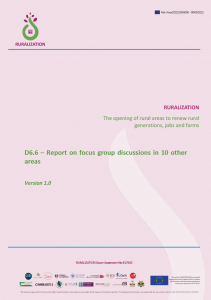
D6.6 Focus group discussions – Output#3
Section title: Discussion and recommendations

D6.6 Focus group discussions Output#1
Section title: ANALYSIS PART 1: highlights on solutions for access to land for new generations
